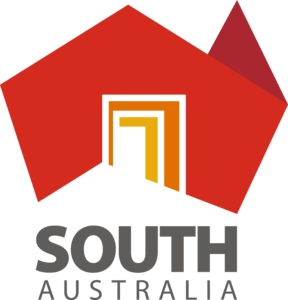Whilst Event Ticketing Systems have evolved over time, with the mass adoption of digital ticketing systems, ticket books are still being used and have their unique advantages in today’s changing landscape.
Event ticketing is a key part of event management and is used in concerts, sports games, and festivals, to name a few. It is essential for controlling entry and movement during big events.
Today, the two most commonly used forms of ticketing are paper tickets and digital ones kept on mobile devices.
Whilst custom ticket books involve physical tickets, digital tickets involve scanning QR codes or similar technology available on people’s mobile devices. In recent times, there has been an observable shift towards digital tickets. However, there is still a place for custom ticket books and paper tickets over e-tickets.
In this article, we will highlight some of the key differences between the two ticketing types, including their unique benefits and potential drawbacks.
There are two main types of paper tickets. The first ones are perforated tickets with a tear-off section. They are commonly used at concerts and local events and are picked up at the entry gate.
The second option is thermal tickets, which are printed using heat-sensitive paper that does not use ink but instead uses heat to ‘print’ onto tickets; they often utilise barcodes that can be scanned.
Conversely, there are also a couple of different types of digital tickets, including QR code tickets, and barcodes that are sent to attendees to be kept on their digital devices, and then scanned at event gates. Another option is the Near-Field-Communication (NFC) ticketing system that uses scanners to verify tickets.

Paper tickets offer tangible keepsakes and can be easier for event managers to organise. They are also accessible to a wide range of people, even those who are less confident with digital solutions.
The downside of paper tickets is that they may be less environmentally friendly if there are no recycling facilities available. They are also at risk of loss or damage, which can complicate event management.
Digital tickets, on the other hand, offer fast event entry, have different environmental impacts and can offer data insights.
However, some of the drawbacks include dependence on technology, potential technical issues and privacy concerns. There are also issues with data storage and energy usage. What this means is that people who have trouble accessing and using technology may struggle using their tickets. On the other hand, if there is a breakdown in the system, it can put the whole event at risk.
Ticket design is important when it comes to both digital ticket generation and paper ticket design.
Custom ticket books can serve as souvenirs and are often designed with marketing purposes in mind. The event name, year and unique colours are often used to help with brand identity, as well as with identification. They also need a unique identifier, to prevent fraud, such as a serial number or other security feature such as a unique barcode or UV ink.
Digital tickets on the other hand often have less emphasis on aesthetic designs. There is instead more emphasis put on practical decisions such as digital ticket sizes that are appropriate for smartphones, as well as easily scannable QR codes. Digital tickets should also have some anti-tampering features such as encrypted QR codes as well as other links to maps etc.
Paper tickets are designed with graphic design software and printed by specialised companies. Whereas digital ticket generation does not always require a graphic designer, and can usually be done by online companies who specialise in security features.
Branding elements will help with brand identity, marketing and establishing event branding with emotional engagement at the forefront of decision-making.
Security features help to prevent counterfeiting, ensure single entry, and deter scalping.
Generally speaking, digital tickets are easier to distribute to attendees. Ticket links can easily be downloaded from online ticketing platforms and mobile apps, and they can be emailed or texted to attendees.
Paper tickets are usually picked up or purchased from box offices third-party retailers, or picked up from the event itself either on the day or a few days prior.
There are a couple of unique challenges when it comes to both ticketing options. For example, online ticketing systems are not ideal for young children, elderly people or people with certain disabilities who struggle to access technology.
Whereas box offices, and physical retailers have the added problem of requiring a certain amount of time to purchase tickets prior to events.
Ticket distribution has a profound impact on user experience. Whilst digital tickets have the added benefit of requiring virtually no time to access tickets and are easy for most people, physical tickets have the added benefit of direct communication with event organisers and often leave people with greater anticipation for the event ahead.
Whether you opt for digital or physical ticketing systems, some key security features should be used, these include;
Ticket security helps with fraud prevention in several ways. The numerous security features are often used to ensure only one person can use the ticket at once, which prevents theft or multiple uses of one ticket.
In digital tickets, the scanning, or similar entrance detects if a ticket has been scanned before, and will alert event staff. Whereas physical tickets have unique identifiers which allow event organisers to check if the ticket is legitimate, using the unique features, and if it has been used before.
Both custom ticket books and digital ticket scans offer great security, given the right features. In general, digital tickets have better security compared to physical tickets. Physical tickets are at risk of being stolen or lost, for example.
However, features such as unique identifiers and other security features make duplication of physical tickets very difficult.
The main security concern with digital tickets, which paper tickets are of much lower risk of, is data leaks.
The environmental impact of ticketing systems should not be underestimated or ignored. As most companies and almost all consumers are more aware of sustainability, this must be considered during event planning.
The environmental impact of producing ticket books is not negligible, as paper consumption, chemical/ energy usage and waste generation all play a role in carbon emission and waste generation. There is also the environmental impact involved in shipping and distributing physical tickets.
Whilst it is pretty easy to argue that digital ticketing systems have a reduced environmental impact, it is not in itself negligible.
There is significant data storage involved in digital ticketing, which requires a vast amount of energy, and carbon emissions are significant. Whereas the use of devices that can access digital tickets significantly contributes to e-waste.
In general, digital ticketing is seen as being more environmentally friendly than physical tickets. However, whilst they produce little physical waste, the energy involved in information storage is significant. The environmental impact when using electronic ticketing systems should not be ignored.
It is also important to remember that not all physical ticketing systems are the same. Some companies, such as the Wristband Co., are committed to environmental betterment and have policies such as their net-zero carbon emission scheme.
There are some key costs to consider when it comes to producing custom ticket books. First and foremost, the material cost needs to be factored in, along with the production costs and distribution costs.
Digital ticketing systems have lower upfront costs when compared to paper tickets.
The main cost associated with digital ticketing systems is digital platform expenses which involve digital platform fees. There may also be some ongoing costs in software maintenance, upgrades and cybersecurity measures, as well as ticket scanners.
When it comes to the financial analysis, there are different financial benefits to each ticketing option
Whilst paper tickets have higher upfront costs, they are usually better suited to smaller events, where purchasing software for digital tickets is not realistic, and may cost more than the material and labour cost of paper tickets.
For larger events, digital tickets offer better long-term financial benefits, as they are cheaper at scale and offer some return on investment (ROI), as they also allow for advertisement and easier marketing.
When it comes to custom ticket books, attendees are required to store and present a physical ticket at event gates. When at the event, they are required to show their physical ticket, and they are often asked to scan it. Whilst there is potential for these tickets to get lost, they offer great sentimental value and are often kept as a memento for the event.
Digital tickets, on the other hand, are more known for their convenience. They are stored on a mobile device and scanned via QR code, barcode, or NFC. Although showing the ticket is still required, it is not physically kept.
Both ticketing systems offer different benefits in terms of user experience.
Paper tickets offer better accessibility to people who do not have access or know how to use a digital device. This can result in better customer satisfaction amongst this population. Another key benefit is that paper copies are often used as ticket keepsakes, which helps with the overall customer journey.
For people attending events where keepsakes are less of a potential benefit, digital tickets are easier to handle, and the ease of convenience for most people helps with customer satisfaction.
Emerging technologies such as AI, blockchain and NFTs are rapidly changing the future of event ticketing. These technologies may offer benefits such as personalised event remediation, predictive data analytics, fraud detection and tighter resale control.
These new technologies will likely add new features to digital ticketing rather than revolutionise ticketing. These include data-driven insights, highly specialised marketing, and additional event attendee tools. In the future, face ID may be used instead of the tickets themselves.
As the world becomes more digital, it has been shown time and time again that some things never change. Physical tickets will likely remain for their unique collectible value, especially for special events where people carry sentimental value from ticketing.
They are also great for people with accessibility options and smaller events.
Both custom ticket books and digital tickets have their place in today’s ticketing systems and are likely to coexist in harmony in the future.
Whilst custom ticket books offer a sense of nostalgia and are often used in smaller events or events where accessibility issues are evident, digital ticketing systems certainly offer benefits. Digital ticketing systems are more cost-effective for larger-scale ticketing, potentially more environmentally friendly, and can have enhanced safety features.
If you’re interested in how custom ticket books can be used in your event, don’t hesitate to get in touch with us at 08 8363 4850, or email us at [email protected]. We’re always more than happy to help.


Join our mailing list to receive product information, endless inspiration and 10% off your next order!
Monday – Friday 8:30 AM-8:30 PM
Saturday 10:00 AM-5:00 PM
Sunday CLOSED
38 Little Rundle Street Kent Town SA 5067
08 8363 4850
ABN: 62 239 772 879
The Wristband Co. is located on the traditional lands for the Kaurna people, and we respect their spiritual relationship with their Country. We also acknowledge the Kaurna people as the custodians of the Adelaide region and that their cultural and heritage beliefs are still as important to the living Kaurna people today.
Payments Accepted